Review for Han Gong-Ju
Introduction
I have this instinctive aversion to award winners. I think it has something to do with me not liking most of the films that garner accolades at the Oscars each year. There’s something about the nature of the films nominated, the suddenly earnest performances from actors who’d normally be slumming it in a summer blockbuster, or it could be just the annoying fact that the animation Oscar always goes to a 3D CG family movie from Pixar or Dreamworks, leaving the rest of the planet forgotten and ignored. So when a film shows up with a ‘Winner of...’ plastered across the PR blurb, I begin to set myself up for a disappointment. Hang Gong-Ju comes with a whopping great 12 Awards listed in its blurb, plus an award for the short film that comes in the extras. And it’s only the debut feature film of director Lee Sujin. On the plus side, none of the awards are from Hollywood, but then again, it does get an endorsement from Martin Scorsese, which probably means that the US remake is already in production. I’m probably getting cynical in my middle age.
Han Gong-Ju is a school girl who’s just been forced to transfer to a school in another city, away from her family, and having to live with the mother of one of her old teachers. She’s introverted, quiet, and morose, and unwilling to engage with the world. The only thing she makes an effort at is learning how to swim. It turns out that even without her inward personality; she’s just supposed to keep her head down until things are sorted out back home. But despite herself, she makes a friend in her new school, begins to open up, and even reveals a talent for singing. But just when it looks as if their might be a light of optimism in her life, her past catches up to her in a shocking way, the reason for her transfer revealed.
The Disc
Han Gong-Ju gets a 1.85:1 transfer at 1080p resolution on a BD25 disc. It’s a strong transfer of a naturalistically shot, realistic film, with good detail and colour reproduction. It’s very watchable indeed on this Blu-ray with no issues. The same is true for the DTS-HD MA 5.1 Korean audio track. Again in such a naturalistic film, it’s not a surround track called upon all that often to impress, and the film’s music is unobtrusive to the point of invisibility (except for Han Gong-Ju’s singing), but there are moments of subtle and effective surround presence that enhance the story-telling. I noticed one typo in the subtitles around the 1 hour 24 minute mark, ‘fist’ instead of ‘first’, and once small niggle was the use of pounds as a currency.
The images used in this review have been kindly supplied by Third Window Films.
Extras
The disc presents its content with the usual animated menu screen, and you also get the film’s trailer (1:04 HD).
Most interesting is the short film, Enemy’s Apple, presented in 2.35:1 1080p and running to 21:07. It’s a wonderfully dark and comic piece from director Lee Sujin, a confrontation between a riot cop and a protestor in a back alley during a riot, almost a spaghetti western cartoon in tone.
Conclusion
My trepidation regarding award-winning films was certainly unwarranted in this instance. Han Gong-Ju is a stunning piece of work, coupling engaging direction with excellent performances, not least from the lead actress, Chun Woo-Hee. It’s a fascinating character study, and the most compelling and imaginative telling of what is, unfortunately, a mundane and common story, that I have seen. But I have to say that Han Gong-Ju is not an easy film to watch. It’s harrowing, unnerving, and can cast a shadow over the soul. Like the ‘best’ such films, it’s not relentless about it; it’s actually more effective because it contrasts its dark subject matter with moments of light. You may only have the heart to watch Han Gong-Ju once, but it very much deserves, and needs to be seen. It’s that important a film, both in its subject matter and its timing.
I’m going to be a little unconventional here, and issue forth a SPOILER, but given what’s in the general domain about this film, it’s probably not much of a spoiler, but click away if you don’t want to know. Han Gong-Ju is about sexual violence. You may think that it’s hardly a new subject in cinema, but in terms of how it tells its story, and its timing, I doubt that any other film has been as appropriate as Han Gong-Ju. If you just switch on the news these days, it’s impossible to get away from the spectre of sexual violence and abuse. From the horrifying treatment of women in India, to the scandalous behaviour of celebrities in the UK, to the grooming of children in Rotherham, to the establishment and authority cover up of abuse, to the Catholic Church scandals, and on and on and on... Just turning on the news these days will break your heart... the first few times. And then it all becomes background noise, faceless victims in shadow voiced by actors, statistics, and public relations. What these victims need, all across the world, is a face and a voice.
Han Gong-Ju provides that face and voice, as we see the effect that such violence has on a victim, and on society, especially the kind of society that can at times condone, and even facilitate such acts. The suffering of a victim shouldn’t be compounded by stigma and ostracism, but that is what compels the title character’s exile at the start of this film. You might be forgiven for thinking that as this story is based on an actual incident in South Korea, that this is a South Korean problem, a world away from our own. And then I recall the high profile case of footballer who was released from prison recently, whose victim’s name was outed on Twitter, who then became the subject of horrific Twitter abuse and even threats. There’s a scene in the film where Gong-Ju visits an internet cafe, and in the background a bunch of boys are playing an online game, making the sort of comments about a game character that are chilling when you hear them, and make Gong-Ju visibly uncomfortable, and have the same effect on the viewer. It’s just kids talking about a videogame. And then I remember the Gamergate scandal.
Han Gong-Ju isn’t just about the victim, it’s about society as well, and it has never been more relevant or timelier for UK and Western society as it is for South Korean society. This is a film that really needs to be seen.
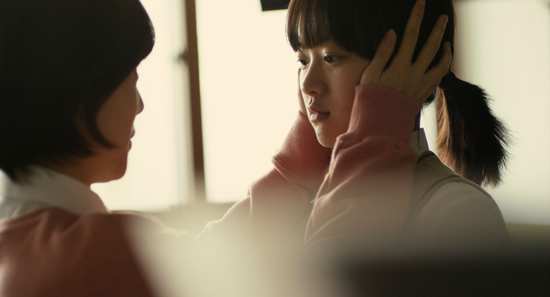
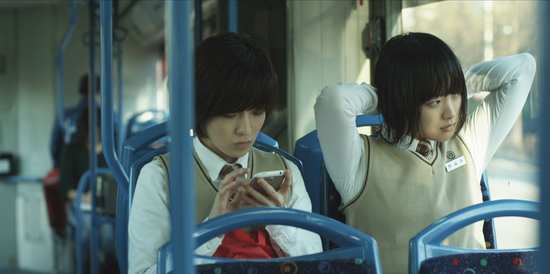
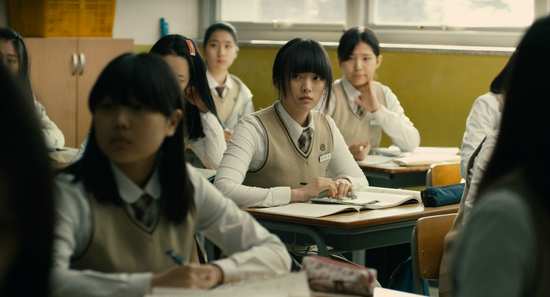
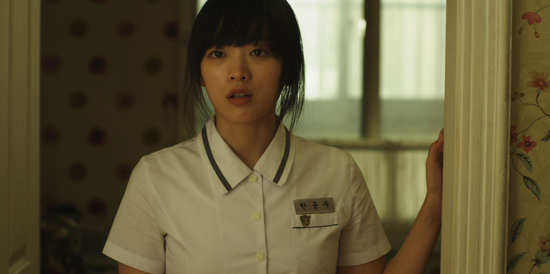
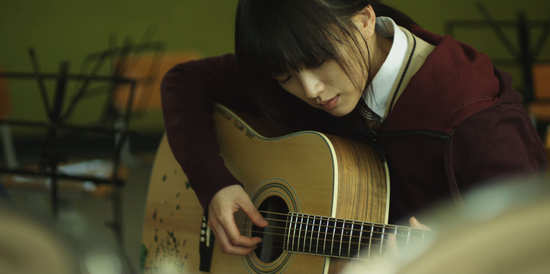
Your Opinions and Comments
Be the first to post a comment!